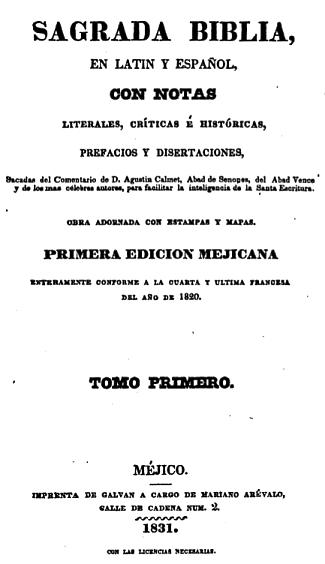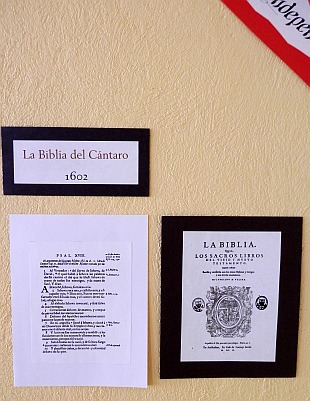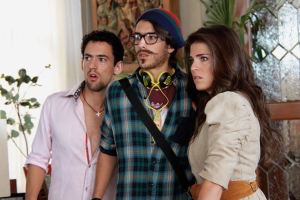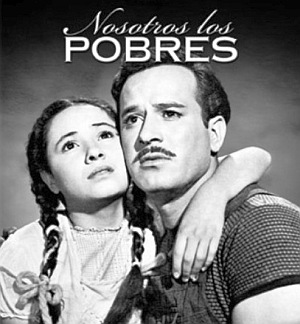Visas – Another step forward (podcast)
I was able to make some progress on our visas today! For more details, listen to the podcast. 🙂
(Can’t see it? Click here and scroll down a bit.)
I was able to make some progress on our visas today! For more details, listen to the podcast. 🙂
(Can’t see it? Click here and scroll down a bit.)
On this day in 1876 (the 28th of April), a Mexican man named Mariano Galván Rivera passed away in Mexico City. Every heard of him?
 |
Galván was a printer and editor in the newly independant Mexico. He published a newspaper called The Mexican Republic Observer (El Observador de la República de México), and he worked with priest and reformer José MarÃa Luis Mora.
Mora believed that study of the Bible should be a part of the new Mexico. It was Galván that accepted the challenge to translate the Scriptures, something that had never been dared before because of the Inquisition.
There had been Spanish translations before. In fact, it was just about the same time when Scottish missionary James Thomson was bringing some of the first Spanish Bibles many would ever see into Mexico (and he caused quite the hubub, but that’s another story!). But this translation from Galván was to be a Mexican translation for the new world.
One language had been blessed with several translations very early on – French. This was partly due to the work done in Geneva under John Calvin and other who followed him. Missionaries went out from Geneva, spreading the French Bible and translations from the French. In fact, it could be that the very earliest translations in Castilian/Spanish in Spain came from missionaries (from the Waldensian tradition) who translated the Bible from French.
So Galván based his version on the French. In the end, when it was published in 1831, it was 25 volumes in Spanish and Latin, including discourses from an Abbott named Luis de Vence. Today, we know this Bible as La Biblia Mexicana de Vence, the Mexican Bible of Vence.
The Word of God in Spanish – let’s not take it for granted! It took a long time to get here…
More on Spanish Bibles
Today, on day 526 of working to get our visas for Mexico, I emailed some more documents.
Yup, we’re still moving forward. At least, I think it’s forward… wait – what direction am I facing?
Hopefully I’ll have more interesting news for you soon!
Which five countries in Latin America have lowest % of evangelicals? All right, we all know that this number is only marginally useful. There are a lot of nominal evangelicals (particularly where the % is high), and there are a lot of “evangelicals”. But still, for comparison’s sake, which countries are the bottom 5?
With the best information I could find for 2013, they are
Paraguay is at the bottom. Incidentally, El Salvador, Nicaragua, Brazil, Guatemala and Honduras are at the top, with the most evangelicals.
Now here’s the odd thing. Out of those 5 countries, there’s only one that has fewer missionaries (per capita) than Mexico. It’s Colombia.
So why is it that out of the bottom 5, Mexico and Colombia have so few missionaries? The other 3 are in the top 7 when it comes to missionaries, but Mexico and Colombia are waaaay behind.
But I have more bad news for Mexico. The growth rate of evangelicals in Colombia is the highest in Latin America. Mexico, on the other hand, is about in the middle, with only 63% the growth rate of Colombia.
 |
So all things considered – missionaries, evangelicals, and evangelical growth rate – Mexico isn’t looking so great!
Yes, the world’s largest Spanish speaking country – strategic, and currently open – do you see why we’re asking people to come to Mexico?
Before I started looking into it, I thought “everyone went to Mexico”. Well, there are a lot of short term teams hitting the border. But incidentally, most of the evangelicals in Mexico are south of us on the Guatemala border and in the north east. So central Mexico has a much lower % of evangelicals – probably far lower than any other country in Latin America.
So we should take every missionary out of the other countries and send them to Mexico, right?
WRONG! Ok, sure, maybe it’s time for some to move on. But there are still segments of the population in every country that won’t be reached unless someone from outside comes in to reach them (either outside their country or outside their culture or group). There are unreached people in all these countries.
Also, many are training leaders and missionaries that could be serving Mexico and other countries that need church planters.
So no, we don’t need to move all the missionaries to other countries. They’re needed where they are! And we can’t deny the need in many other countries around the world.
What we need is more people who are willing to come to Mexico to have a part in reaching these vast numbers of who haven’t heard the Gospel. Pray that the Lord would send workers!
Ok, so statistics only tell you so much – and maybe that’s not much. Still, I think they can give you a clue about what’s going on in the world.
Yes, there’s still a need in Mexico. Are you interested in coming for a week? 6 months? A year? Contact us and let’s talk about it!


 |
I learned a few things tonight. I took the time to compare some of the translations (because, after all, I don’t have room to lay them all out like this in my house!), and there really are some interesting things that have happened through the Reformation, Independence, the Revolution, modern times – anyway, I won’t go into all the details here. 🙂
By the way, I updated my page on Spanish Bible translations online right here.
It has obviously struck a chord. The Mexican comedy, Nosotros los Nobles (We the Nobles), has become one of the biggest hits of all time in Mexico.
 |
In the movie, a millionaire father has a brush with death, and realizes that his children aren’t ready for “real life”. To teach them a lesson, he stages an elaborate charade to convince them that they’re broke and must go into hiding in a poor neighbourhood. His three (grown up) children get jobs as a bus driver, a bank employee, and a waitress.
The movie was filmed in Mexico City, and there’s no doubt that Chilangos (Mexico City dwellers) can see a lot of truth in the story as the sheltered rich attempt to function amongst the “lower classes” – the middle and lower classes of the city.
I’m not going to recommend the movie (I haven’t seen it, only clips), but I do think it’s a great moment to highlight both the incredible wealth and grinding poverty in Mexico City.
Mexico is, of course, the home of the world’s richest man – Carlos Slim. People have been known to take their own helicopters to work.
At the same time, about 3000 people live on the streets. 10% of the population of Mexico is said to live in “extreme poverty”.
People in Mexico City are statistically some of the hardest workers in Latin America, often holding down two or three jobs. But some must have multiple jobs to make ends meet, many earning a minimum wage of about $112 per month. And yes, prices in the city are often high.
Mexico beats out most countries in the world when it comes to the “income gap”, with about 10% of the population holding 40% of the country’s wealth. It’s not surprising if the majority would like to see the wealthy knocked from their perches – whether in the movies or in real life.
In his first months in office, the new president has managed to shake up some of the country’s most powerful, making the news headlines always interesting.
Granted, the rich may often be oblivious. The poor may be fatalistic, and let’s face it – it’s not easy to get the next meal, never mind save for retirement or or save enough to put a new lock on the door.
But all segments of society need to know about God’s salvation in Jesus Christ. And because groups are so isolated – whether it be rich and poor, or from community to community, or job sector to job sector – it can be very hard for the Good News to spread in Mexico. This may be one reason why so many communities in central Mexico in particular continue without a Gospel witness.
Before we laugh too hard at the rich, let’s remember that the rich in Mexico are possibly one of the least-reached groups (by the Gospel) in the hemisphere.
 |
We need to pray for people of all kinds who can reach people of all kinds here in Mexico. Perhaps the well-off oil executive needs to retire to Mexico to share with others who will respect him. Perhaps a single Mom needs to come to share with single Moms. Perhaps young families need to come to share with families.
And yes, we need to weep for the poor and reach out to them.
Nosotros los Nobles echoes the sentiments of classic movies in Mexican cinema such as Nosotros los Pobres (We the Poor) and Ustedes los Ricos (You the Rich) from 1948. 65 years later, a lot has changed. Modernization, changes in government, a growing middle class. But much remains the same. Many – from all classes – still live without Hope.